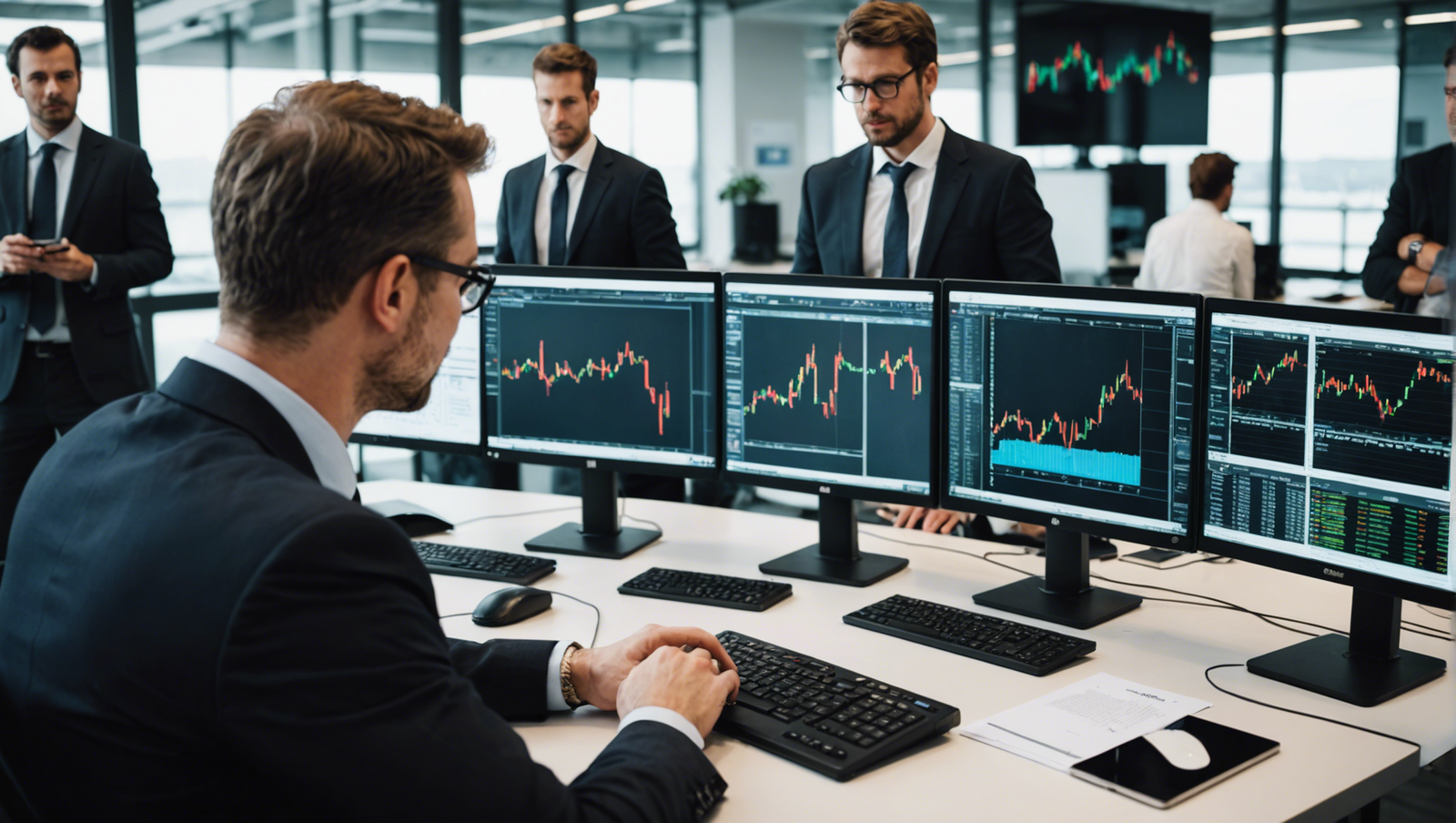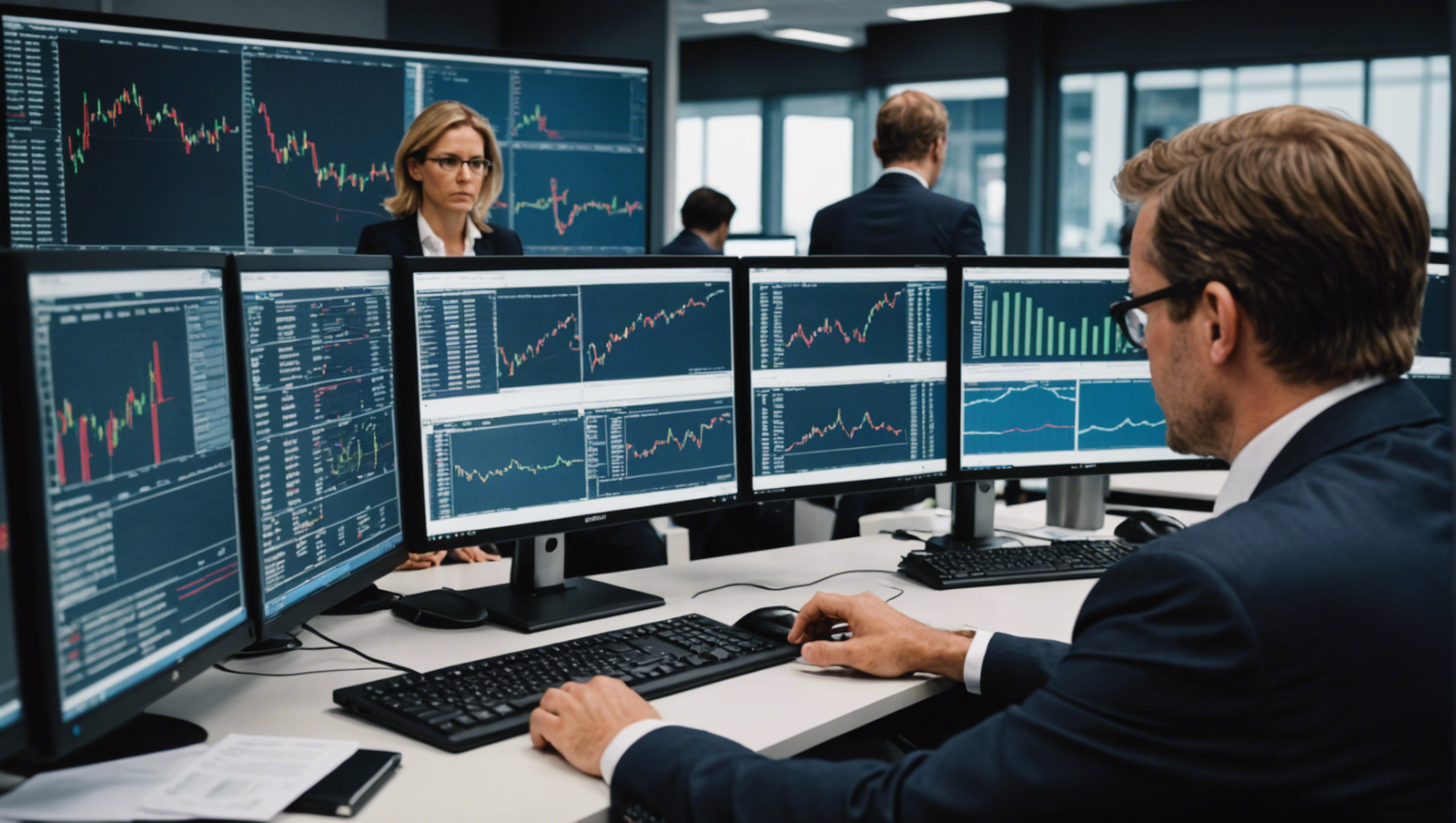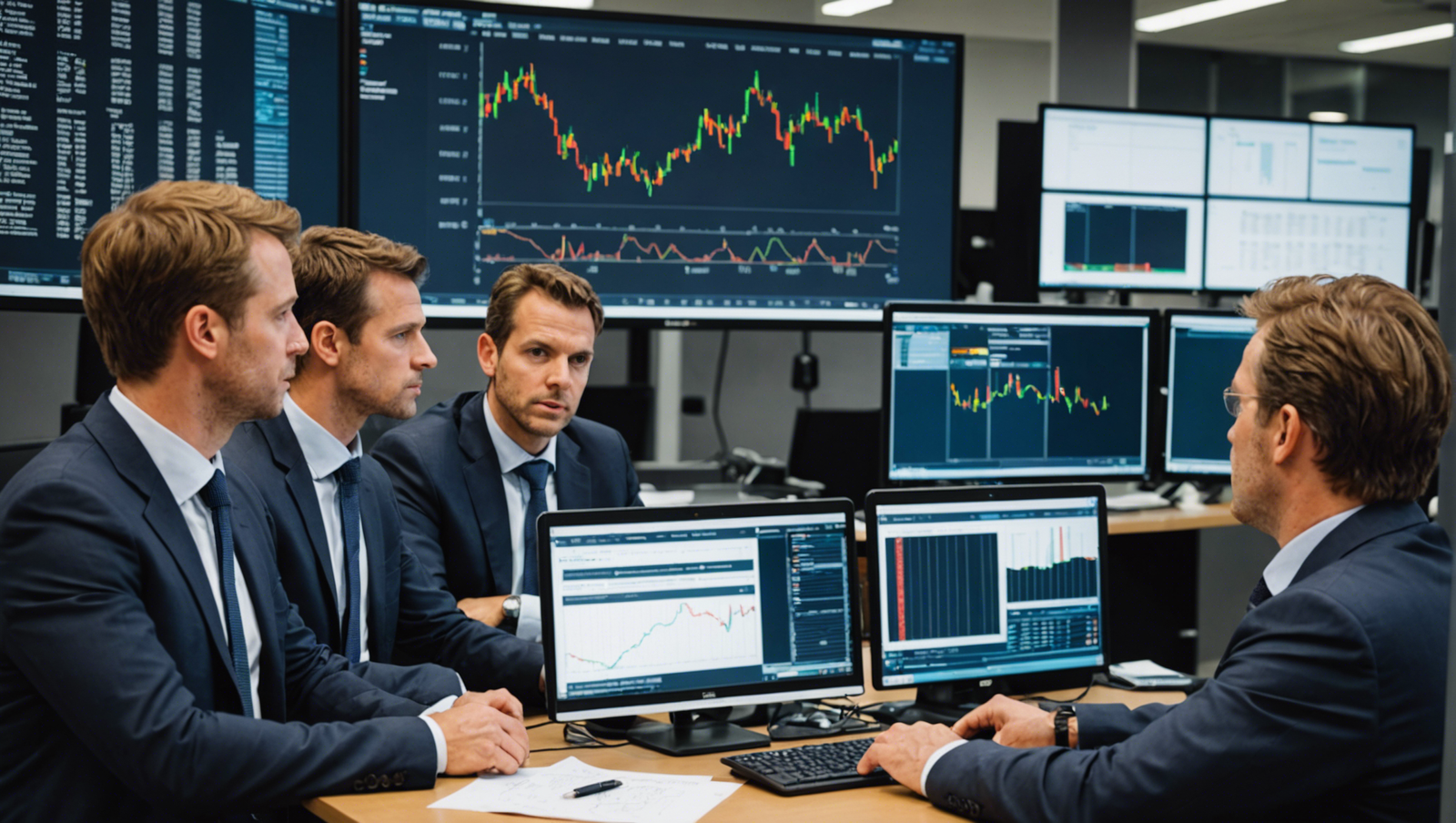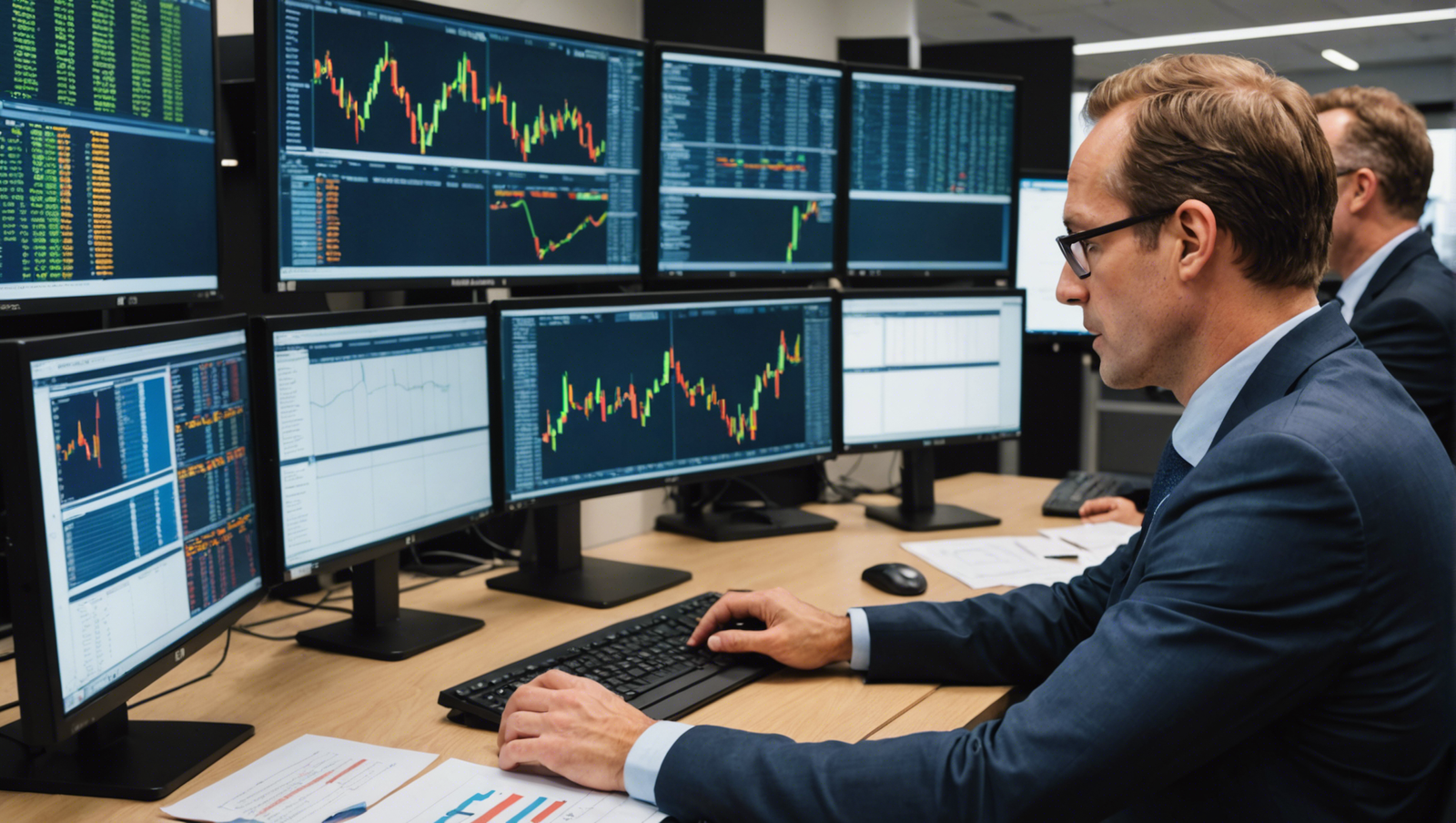“Do you want to be one of the elite traders in the world of finance? Our in-depth analysis reveals the experience of traders after their training within highly prestigious Prop Firms. Through multiple testimonials, we decipher what it means really cut your teeth in these selective firms, and how that shapes a career in trading.”
Personal experience: the reality of trading after training

The reality of trading: What my training did not give me
Being a trader professional, I had the opportunity to discover the fascinating world of trading and stock markets. After completing my training and diving into the intensive world of trading, I realized that there was much more to learn and achieve in practice than what my training had prepared me for.
The difference between trading theory and reality
Theory is essential and provides the foundation for any profession, trading is no exception to this rule. However, the reality of trading bears little resemblance to the simulations and theoretical scenarios that we encounter during training. Possibly drowning in the ocean of stock market fluctuations allowed me to understand the importance of quickly absorbing information and acting quickly to maximize opportunities. The truth is that formative practical experience on a demonstration platform is very different.
Managing psychology in trading
The psychology of trading is something that my training was only able to cover lightly. How a trader handles situations of stress, uncertainty and potential gains or losses can make all the difference in trading results. L’impact of psychology in trading is something I fully realized after my training.
The reality of trading and taxation
Another aspect that my training had not covered is the taxation of trading. Have a good understanding of the taxation can make a big difference in a trader’s financial success, especially when dealing with large amounts.
A rewarding trading experience after the training
The experience of real trading can be disconcerting, rewarding and intimidating, all at the same time. However, I am grateful for the challenges and lessons as they have broadened my horizon and deepened my understanding of this fascinating industry. In summary, the reality of trading after training is a continuous adventure of learning, skill development and personal growth. I encourage anyone interested in this field to enter with an open attitude and expect a journey full of surprises. It is a career that requires perseverance, patience, rigorous risk management, solid analysis and rapid decision-making. Trading is much more than just numbers and markets, it is an art that requires strategy and discipline, where real satisfaction is found in the journey taken to succeed.
Testimonials from former students: how trading is going after training

The reality of the trading profession after training
The trading experience after training is often mixed, bringing out a series of sometimes unexpected challenges. Coming from various backgrounds, some former students tell their journey, which is frankly different from the sometimes fantasized image of the trader’s profession. The testimonies reported here confirm that the trading is a demanding profession, which requires courage and resilience.
A crucial aspect of the profession, often underestimated, is the psychological challenge associated with taking risks and managing losses. Some alumni mentioned that managing emotions is, in actual practice, much more complex than they expected. The key to the trader’s success lies as much in his ability to analyze the markets as in his mastery of the psychological aspect of trading, as the site highlights. Andlil.
Risk and opportunity in the life of a trader
On the other hand, constant learning of new technologies and market regulations also constitutes a constant challenge, but also an opportunity to stand out. In this context, training is only a first step towards a career as a trader; Continuous learning remains essential to stay current and relevant in the ever-changing financial markets.
Some traders also noted the crucial issue of financial stability. While reputable brokerage platforms, like Avatrade, documented on Detective Bank, offer promising opportunities, the trader’s profession is not free from fluctuations. You must therefore be prepared to survive lean periods and anticipate trend reversals to remain profitable in the long term.
Reputation and reality of the trading profession
Despite the challenges, the trading profession continues to attract many aspirants for its promises of independence and high profits. As testimonials from alumni confirm, trading offers real opportunities for success for those who are willing to work hard and always question their own strategies and psychological mechanisms.
The testimonies also show that the trading experience after training is an epic where tenacity, discipline and the desire to constantly learn are the key to success. Far from the glamorous image sometimes conveyed, the trader’s life is made of constant effort, dedication and resilience.
Return on investment: the impact of training on trading performance

The determining impact of training on trading performance
Perfecting your technique, improving your analysis and refining your trading strategy are crucial factors for any trader aspiring to success. But, just like in any competitive career field, quality training can make a huge difference. The latter strongly influences the performance as well as the return on investment of traders.
Trading has become more popular in recent years. Formerly reserved for a handful of initiates, this activity is now accessible to a much wider audience. However, access to this world does not necessarily mean being productive or succeeding in generating profits. Several obstacles can hamper the effectiveness of investors, including a lack of reliable information, market variability or the recurrence of classic errors.
Training to overcome classic errors
Making mistakes is common when you start trading. However, it is possible to minimize them by using appropriate training. Indeed, good training allows you to make better decisions and adopt more effective trading strategies.
Some mistakes like blindly following “trading signals” are easily avoidable with quality training. Being well trained also allows you to understand that there are no magic algorithms promising poor stock market performance.
It is recognized that classic mistakes can seriously hamper traders’ performance. But appropriate training makes it possible to identify and avoid them to significantly improve the return on investment.
The importance of improved ROI
A good return on investment is essential for any trader. Although it is common to favor short-term gain, this strategy can prove disastrous in the long term. Indeed, a high return on investment ensures a sufficient margin to absorb occasional losses without completely ruining the invested capital.
One of the ways to improve this famous return on investment is, unsurprisingly, to constantly learn and improve. Finance, and more precisely trading, is a field where constant monitoring, analysis and anticipation are prerequisites to always stay ahead. This is where training plays a key role.
From the choice of currency pairs to trade, through adaptation to market variability, to trading techniques. Dollar Cost Averaging, structured training allows you to develop a global perspective to maximize trading performance and therefore improve returns on investments.
In conclusion, quality training, adapted to the context and expectations of traders, is a powerful lever for increasing yield and return on investment. It allows for better understanding of the market, reduction of errors and overall improvement in trading performance. To remain competitive and profitable, no trader, whether beginner or experienced, can afford to avoid such training.

